About the video
In a wide ranging talk on three waves of AI, this primer is both a good introduction to, and reflection on, where we have been, where we are going, and what we need to think about regarding intended and unintended consequences for AI
About the author

Marwa Soudi, a serial mompreneur and a seasoned EdTech expert with over 15 years of experience, currently serves as a Junior Researcher in Digital Transformation and Lifelong Learning at Tallinn University. She is also pursuing her Ph.D. at the same institution, specializing in Responsible AI and the development of a reliable AI ecosystem for SMEs. Marwa is a Co-founder and Technology Capacity Building Manager at IdeasGym and has co-founded the Women in Engineering affinity group in Egypt. She has been a featured speaker at various women in technology events and received the prestigious “ICT for Woman” first place award in February 2018.
Marwa holds BSc and MSc degrees in Electronics and Communications from Alexandria University and an MA in Educational Technology from the University of Tartu, Estonia, focusing on the role of tinkering and making in educational technology. She actively contributes to the IEEE Working Group, P3119 AI Procurement Standard, and serves as the co-chair of the IEEE Working Group, P3119 AI Procurement Standard Terminology Subgroup
Recommended resources
[1] AI-HLEG. (2019, April 8). Ethics Guidelines for Trustworthy AI. Brussels;European Commission.
[2] AI Ethics Guidelines Global Inventory. AlgorithmWatch. (n.d.). Retrieved March 24, 2023, from https://algorithmwatch.org/en/
[3] Avgerinou, M., Bertoldi, P., amp; Castellazzi, L. (2017). Trends in Data Centre energy consumption under the European Code of Conduct for Data Centre Energy Efficiency. Energies, 10(10), 1470. https://doi.org/10.3390/
[4] Bartekov´a, E., amp; B¨orkey, P. (2022). Digitalisation for the transition to a resource efficient and circular economy. OECD Environment Working Papers. https://doi.org/10.1787/
[5] Berkhout, F., amp; Hertin, J. (2001, May 25). Impacts of Information and Communication Technologies on Environmental Sustainability: speculations and evidence. Retrieved March 24, 2023, from https://www.oecd.org/science/
[6] Blair, G. S. (2021). Digital Twins of the Natural Environment. Patterns, 2(10), 100359. https://doi.org/10.1016/j.
[7] CIFAR. (2022, February 8). Pan-Canadian AI strategy. Retrieved March 25, 2023, from https://cifar.ca/ai/
[8] Collini, L., Hausemer, P., Chen, I., Vitic, J., Le Moul, M., amp; Marcus, J. S. (2022, December). E-commerce and the EU Green Deal. Retrieved March 25, 2023, from https://www.europarl.europa.
[9] Dodge, J., Prewitt, T., Tachet des Combes, R., Odmark, E., Schwartz, R.,Strubell, E., Luccioni, A. S., Smith, N. A., DeCario, N., amp; Buchanan, W. (2022). Measuring the carbon intensity of AI in cloud instances. 2022 ACM
Conference on Fairness, Accountability, and Transparency. https://doi.org/10.1145/
[10] European Comission. (2021, April 21). Europe fit for the Digital Age: Commission proposes new rules and actions for excellence and trust in Artificial Intelligence. Press Corner. Retrieved March 25, 2023, from https://ec.europa.eu/
[11] Floridi, L. (2019). Translating principles into practices of Digital Ethics: Five risks of being unethical. Philosophy and Technology, 32(2), 185–193. https://doi.org/10.1007/
[12] Hagendorff, T. (2020). The ethics of AI Ethics: An evaluation of guidelines. Minds and Machines, 30(1), 99–120.
https://doi.org/10.1007/
[13] Hengstler, M., Enkel, E., amp; Duelli, S. (2016). Applied Artificial Intelligence and Trust—the case of autonomous vehicles and medical assistance devices. Technological Forecasting and Social Change, 105, 105–120.
https://doi.org/10.1016/j.
[14] Luccioni, A. (2020, August 11). Estimating carbon emissions of Artificial Intelligence. IEEE Technology and Society. Retrieved March 25, 2023, from https://technologyandsociety.
artificial-intelligence/
[15] Martineau, V. (2019, December 12). Montreal researchers launch an AI carbon footprint calculator. Retrieved March 25, 2023, from https://mila.quebec/en/
[16] Mikalef, P., Conboy, K., Lundstr¨om, J. E., & Popoviˇc, A. (2022). Thinking responsibly about responsible AI and ‘The dark side’ of AI. European Journal of Information Systems, 31(3), 257–268.
https://doi.org/10.1080/
[17] Morley, J., Floridi, L., Kinsey, L., amp; Elhalal, A. (2019). From what to how: An initial review of publicly available AI ethics tools, methods and research to translate principles into practices. Science and Engineering Ethics,
26(4), 2141–2168. https://doi.org/10.1007/
[18] OECD. (2022). Measuring the environmental impacts of Artificial Intelligence compute and applications. OECD Digital Economy Papers. https://doi.org/10.1787/
[19] Oxford Insights. (2020). Government AI readiness index 2020. Retrieved March 24, 2023, from https://www.oxfordinsights.
[20] Parliament and Council of the European Union (2016). General Data Protection Regulation.
[21] Roski, J., Maier, E. J., Vigilante, K., Kane, E. A., & Matheny, M.E. (2021). Enhancing trust in AI through industry self-governance. Journal of the American Medical Informatics Association, 28(7), 1582–1590.
https://doi.org/10.1093/jamia/
[22] Schwartz, R., Dodge, J., Smith, N. A., amp; Etzioni, O.(2020). Green AI. Communications of the ACM, 63(12), 54–63. https://doi.org/10.1145/
[23] Shaikh, O., Saad-Falcon, J.,Wright, A. P., Das, N., Freitas, S., Asensio, O.I., amp; Chau, D. H. (2021, March 30). Energyvis: Interactively tracking and exploring energy consumption for ML models. arXiv.org. Retrieved March 25, 2023, from https://arxiv.org/abs/2103.
[24] Shneiderman, B. (2020). Bridging the gap between ethics and Practice. ACM Transactions on Interactive Intelligent Systems, 10(4), 1–31. https://doi.org/10.1145/
[26] UNESCO. (2022). Recommendation on the Ethics of Artificial Intelligence. Paris; United Nations Educational, Scientific and Cultural Organization.
[27] van Wynsberghe, A. (2021). Sustainable AI: AI for Sustainability and the sustainability of AI. AI and Ethics, 1(3), 213–218. https://doi.org/10.1007/
[28] Verdecchia, R., Sallou, J., amp; Cruz, L. (2023, January 31). A systematic review of Green AI. arXiv.org. Retrieved March 24, 2023, from https://arxiv.org/abs/2301.
[29] World Economic Forum. (2020, June 11). AI procurement in a box. Retrieved March 24, 2023, from
https://www.weforum.org/
[30] World Government Summit. (2019). AI ethics: The next big thing in government. Retrieved March 24, 2023, from https://www.
[31] Yigitcanlar, T., amp; Cugurullo, F. (2020). The sustainability of Artificial Intelligence: An urbanistic viewpoint from the lens of smart and Sustainable Cities. Sustainability, 12(20), 8548. https://doi.org/10.3390/
Join our community
We are committed to advancing human rights-based approaches in AI & encourage anyone interested in learning more from a global perspective to explore and contribute to our community!
